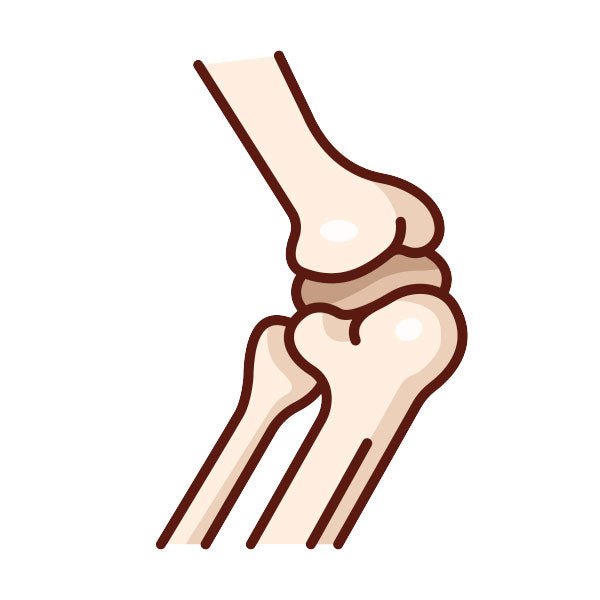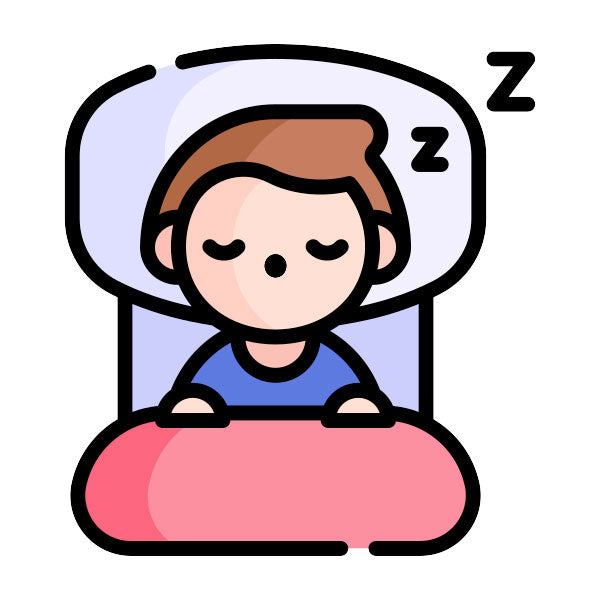WHAT IS MAGNESIUM?
Magnesium is a vital mineral that plays a fundamental role in numerous biochemical processes within the human body. It is an essential nutrient necessary for the proper functioning of muscles, nerves, and various bodily systems.* It is commonly found in foods, supplements, and is also present in trace amounts in the human body.* Magnesium is renowned for its ability to support muscle function, heart health, bone density, energy production, and the nervous system.* Its multifaceted contributions make it an integral part of maintaining optimal health and vitality.*

UNDERSTANDING MAGNESIUM AND ITS IMPORTANCE
Magnesium is key for energy production, protein synthesis, and muscle and nerve function. The advantages of magnesium glycinate, a highly absorbable form of magnesium, highlight the importance of choosing the best type of magnesium to take.
6 DIFFERENT TYPES OF MAGNESIUM
OPTIMAL SOURCES AND TYPES OF MAGNESIUM
Magnesium is found in green leafy vegetables, nuts, seeds, whole grains, legumes, bananas, dairy products, meat, and fish. Supplements like magnesium citrate, magnesium glycinate, and magnesium oxide are beneficial for those who can't meet their needs through diet.* Magnesium glycinate benefits include better absorption and fewer side effects, making it the best type of magnesium to take for many.*

HEALTH BENEFITS OF MAGNESIUM
The benefits of taking magnesium include improved muscle and nerve function, a robust immune system, steady heartbeat, strong bones, and supported glucose metabolism.* Specific benefits like magnesium benefits for men and magnesium benefits for women highlight its importance in addressing gender-specific health needs. Magnesium for muscle cramps and magnesium for nerve discomfort are notable uses.*
THE ROLE OF MAGNESIUM IN YOUR HEALTH
BENEFITS OF TAKING MAGNESIUM AT NIGHT
Incorporating magnesium supplements such as magnesium glycinate or magnesium taurate into your evening routine can be beneficial for improving sleep quality.* Magnesium is known to act as a natural relaxant, which may support a more restful and undisturbed night's sleep.* This can be particularly helpful for those looking to enhance their overall sleep experience.*

MAGNESIUM BENEFITS FOR MEN AND WOMEN
Magnesium offers unique benefits for both men and women. Magnesium for men, it may support testosterone production and prostate health, while Magnesium for women may find relief from PMS symptoms and support for overall well-being during different life stages.* Understanding how magnesium can address gender-specific health concerns can empower individuals to make informed choices about their health.*
THE SYNERGY OF MAGNESIUM WITH OTHER NUTRIENTS

MAGNESIUM AND AGING: AGE-RELATED MUSCLE LOSS
Magnesium is effective in combating age-related muscle loss.* It helps maintain muscle strength and functionality in older adults, contributing to better mobility and reducing the risk of falls and injuries.* A diet rich in magnesium or supplementation can aid in preserving muscle mass as one ages.*
MAGNESIUM FOR NEUROPROTECTIVE EFFECTS
The neuroprotective effects of magnesium are crucial in aging.* It helps in maintaining cognitive functions and potentially slowing the progression of age-related neurological issues.* Magnesium threonate, in particular, is known for its ability to cross the blood-brain barrier and may offer benefits in preserving cognitive abilities in older adults.*
MAGNESIUM AND SLEEP
EMBRACING MAGNESIUM FOR A HEALTHIER LIFESTYLE
In conclusion, magnesium is a multifaceted mineral essential for overall wellbeing. By understanding its benefits, sources, and how to incorporate it effectively into your diet and supplement regimen, you can harness the full potential of magnesium for improved health.*
BEST MAGNESIUM SUPPLEMENT 🥇

Vimerson Health
Pure Magnesium Glycinate 200mg (Glicinato de Magnesio) – Chelated Magnesium Supplement for Sleep, Relaxation, Muscle & Women’s Wellness – Better Absorbed Than Citrate or Oxide – 60 Vegan Capsules









ℹ︎ FREQUENTLY ASKED QUESTIONS ABOUT MAGNESIUM
WHAT ARE THE BENEFITS OF MAGNESIUM?
Magnesium plays a crucial role in numerous bodily functions. It aids in muscle and nerve function, regulates blood pressure, and supports the immune system. Magnesium also contributes to bone health and is involved in energy production.* For individuals with magnesium deficiency, supplementation can help alleviate symptoms like muscle cramps and fatigue. Additionally, magnesium can support better sleep and stress management, enhancing overall well-being.*
IS IT GOOD TO TAKE MAGNESIUM EVERYDAY?
Taking magnesium daily can be beneficial, especially for individuals who might not get enough from their diet.* Magnesium plays key roles in muscle function, bone health, and maintaining normal nerve function.* It also contributes to energy production and can aid in relaxation and sleep.* However, it's important to consume it within recommended amounts to avoid any potential side effects. A balanced diet typically provides sufficient magnesium for most individuals.*
WHAT ARE THE 10 SIGNS OF LOW MAGNESIUM?
Signs of low magnesium can include:
- Muscle cramps or tremors
- Fatigue and weakness
- Nausea
- Loss of appetite
- Vomiting
- Numbness or tingling
- Personality changes
- Abnormal heart rhythms
- Magnesium deficiency-related seizures
- Muscle spasms or soreness
It's important to maintain adequate magnesium levels for overall health.* If you suspect low magnesium, dietary changes or supplements might be recommended.*
WHAT FOOD IS HIGHEST IN MAGNESIUM?
Foods highest in magnesium include:
- Pumpkin seeds
- Chia seeds
- Almonds
- Spinach
- Cashews
- Peanuts
- Soy milk
- Black beans
- Edamame
- Dark chocolate
Incorporating these foods into your diet can help ensure adequate magnesium intake, which is essential for many bodily functions including muscle and nerve function, bone health, and energy production.*
DOES MAGNESIUM HELP WITH SLEEP?
Yes, magnesium is known to help with sleep.* It plays a role in supporting deep, restorative sleep by maintaining healthy levels of GABA, a neurotransmitter that promotes sleep.* Magnesium's muscle-relaxing properties also contribute to its ability to aid in sleep.* Supplements like magnesium glycinate are often recommended for their calming effects, especially beneficial for individuals experiencing difficulty with sleep quality.*
HOW DO YOU KNOW IF YOU NEED MAGNESIUM?
Recognizing a need for magnesium can be based on several signs. Common indicators include frequent muscle cramps, fatigue, irritability, difficulty sleeping, and increased stress levels.* Additionally, a diet lacking in magnesium-rich foods, such as leafy greens, nuts, and seeds, may suggest a need for supplementation.* It's important to maintain a balanced diet and consider a magnesium supplement, especially if experiencing these symptoms.*
SHOULD I TAKE MAGNESIUM IN THE MORNING OR AT NIGHT?
Taking magnesium at night is often recommended, particularly for its benefits in promoting better sleep and relaxation.* Magnesium has a calming effect on the nervous system, making it ideal to be taken in the evening to support restful sleep.* However, if you are using magnesium for other reasons, such as energy or muscle function, morning or split doses can be effective.* The timing can depend on individual needs and the specific benefits you are seeking from magnesium supplementation.*
WHAT DOES MAGNESIUM DO FOR FEMALES?
Magnesium plays a vital role in female health.* It can help in reducing muscle cramps, which are common during menstrual periods, and is beneficial for overall muscle health.* Magnesium also supports bone health, a crucial aspect for women, especially post-menopause.* Additionally, it can aid in stress reduction and promote better sleep, which are significant for overall well-being.* For these reasons, magnesium supplements for women are often recommended.*
IS MAGNESIUM AN ANTI INFLAMMATORY?
Magnesium has properties that can help in balancing inflammation.* Studies suggest that adequate magnesium intake can contribute to balancing levels of inflammatory markers in the body.* This makes magnesium supplements beneficial, especially for those seeking to balance inflammation-related discomforts.* Magnesium benefits for women and men include its potential role in balancing occasional inflammation, which is linked to various health issues.*
CAN MAGNESIUM HELP WITH WEIGHT LOSS?
Magnesium may indirectly support weight loss efforts by improving overall metabolic health.* Adequate magnesium intake is essential for the regulation of glucose and insulin levels, which can affect body weight.* However, magnesium alone is not a weight-loss solution. It should be part of a balanced diet and healthy lifestyle.* The benefits of magnesium include its role in energy production and possibly reducing water retention and bloating.*
* These statements have not been evaluated by the Food and Drug Administration. This product is not intended to diagnose, treat, cure, or prevent any disease.


























